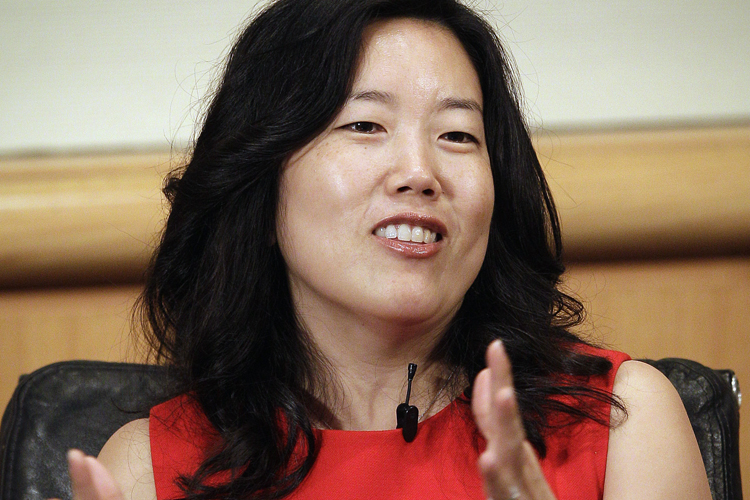A new progressive education group, formed to fight business-backed bipartisan education reform consensus, announced Tuesday it was filing Freedom of Information Act requests regarding for-profit groups’ influence in federal policy. The new group, Integrity in Education, says it’s seeking communications between officials with “known connections to for-profit education corporations,” and “any ethics waivers filed for department leaders and staff.”
“When we see people who are, you know, coming from organizations that are funded by people who can profit from a policy, then serving in an executive role that allows them to carry that out, and then going back to work with the kinds of organizations and the same kinds of funding interests, then that really does concern us,” Integrity in Education executive director Sabrina Stevens told Salon.
Stevens said her group was “troubled by what we’ve seen so far” from the Obama Education Department, citing a 2011 Harvard Business Review essay by Joanne Weiss, Secretary Arne Duncan’s then-chief of staff, which stated that “the adoption of common standards and shared assessments means that education entrepreneurs will enjoy national markets where the best products can be taken to scale.”
Stevens argued that the essay suggested Weiss, who had led Obama’s Race to the Top program, “was so excited about Common Core not necessarily because of its impact on students, but because of the opportunities it opened up for the marketplace, and for for-profit companies that could quickly scale and take advantage of a national market.”
The Department of Education did not immediately respond to a morning inquiry. Addressing a National Assessment Governing Board parent summit Monday, Secretary Duncan said that “Both South Korean and U.S. citizens believe that the caliber of teacher matters tremendously, and the great teachers make a huge difference in children’s lives. The difference is: They act on their belief. We don’t. We talk the talk, they walk.”
Asked about Obama’s October choice of NewSchools Venture Fund chief executive Ted Mitchell as Duncan’s new undersecretary of education, Stevens told Salon she found it “deeply troubling,” given that his past work was “funded by organizations that do stand to directly profit off education policy.” NewSchools Venture Fund did not immediately respond to a request for comment.
Stevens told reporters that she faced a “culture of fear and compliance” during her own time as a public school teacher. “When people like Chris Christie and Michelle Rhee were throwing around buzzwords like ‘accountability,’” she charged, she and her co-workers were “drowning” in standardized tests, and “literally had to stop teaching in order to convince the government that we were teaching.”
Asked about the new group’s funding sources, Stevens, a former staffer for the American Federation of Teachers union, had been “generously funded” by its board chair Deborah Sagner, the president of the Sagner Family Foundation and vice president of the Sagner Companies real estate firm. Stevens said the group would seek to develop a small-donor base, and would “look forward to sharing information about our partner organizations that we work with on campaigns.”
Stevens suggested that the results of the FOIA requests might help explain the Obama administration’s education approach. “Listening to Arne Duncan speak about education,” she told reporters, “really isn’t that different from listening to Michelle Rhee talk about it, or Jeb Bush, or Chris Christie.”

